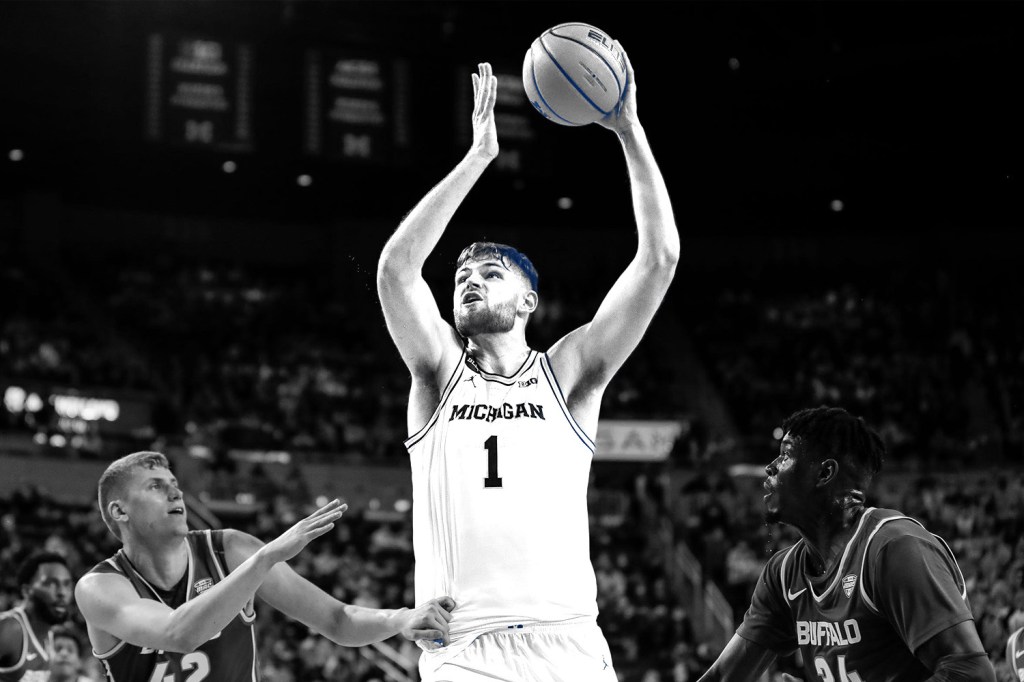At this past weekend’s non-conference men’s hoops tournament, the Roman Main Event, five athletes were working for the event in addition to playing.
Thanks to NIL deals, they were hired as “ambassadors” to promote it.
It was the first time college athletes themselves have been paid to market college games. And it won’t be the last: The Hula Bowl, a postseason football all-star game, announced it will launch an NIL program, too.
“For us, as an [event] operator, it’s an exciting new way to expand our events to work with a select group of players for promotional value,” Roman Main Event tournament organizer and bdG Sports senior director Jon Albaugh told FOS.
Will athletes promoting events like all-star games or non-conference tournaments become the norm?
A Trailblazing Tournament
The Roman Main Event’s organizers had their eyes on NIL long before July 1. Albaugh said they had consulted on the O’Bannon v. NCAA case, which helped pave the way for athlete NIL rights.
Event operators thought an NIL program would make sense because they could recruit athletes from the four teams in strong markets — No. 4 Michigan, Wichita State, Arizona, and UNLV.
They chose Hunter Dickinson, Dalen Terry, Adrien Nunez, Dexter Dennis, and Bryce Hamilton, who used social media to highlight the tournament, and touted promo codes to their fan bases.
“It cuts through the clutter on the things we’re trying to get out to fans,” Albaugh said. “It’s been great.”
Even two weeks before the tournament, Albaugh had already deemed the program a “100%” success. “We’ve recouped our investment on promotional value for sure, adding in some pickup from national outlets … that’s just a bonus,” he said.
A Pro-Athlete All-Star Game
The Hula Bowl, which will be held in January at UCF, was created to give athletes “one last shot” to make an impression on NFL scouts, Hula Bowl general counsel Jason Davis told FOS. They wanted to help athletes with their off-field endeavors, too.
But unlike the Roman Main Event, organizers are interested in hiring athletes who won’t participate in the game, and who may not even play football.
Since graduating seniors’ NIL rights “may not be as viable,” the Hula Bowl will use NIL marketplace Dreamfield to enlist underclassmen who have a “big presence” on campus, Davis said.
With a couple months until game day, Davis’ team hasn’t fleshed out all the details. But they’re planning on asking athletes to do in-person events, like autograph signings.
A successful program will be in the intangibles.
“We want to help these kids out with their new NIL rights as much as we can,” Davis said. “And if they get excited about the Hula Bowl and spread the information about what we’re doing … I think a rising tide lifts all boats.”
A New Frontier
As long as an event operator isn’t a school or conference, it’s eligible to offer NIL deals. Davis and Albaugh both believe these programs could become commonplace in the future.
And with more time to plan, they can be even more successful, Albaugh said, though he believes only certain events would truly benefit. His team considered doing the program with a mid-major tournament and players who aren’t as well known. But that “probably didn’t make as much sense.”
Davis believes it would be a mistake for game promoters to ignore NIL. “A lot of the time, the students themselves are the ones that are drawing the crowds,” he said.
“It only makes sense to partner with them in a mutually beneficial relationship. And I think that’s how things are going to go in the future.”
Tips? Comments? Reach out to Amanda Christovich at amanda@fos.company or on Twitter.



